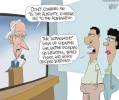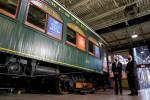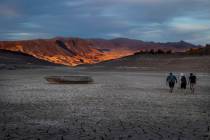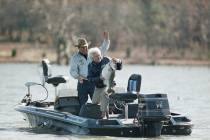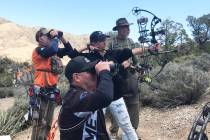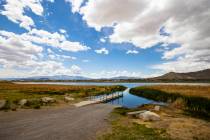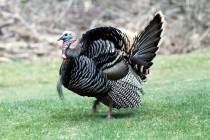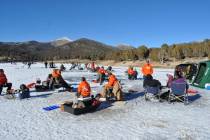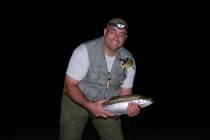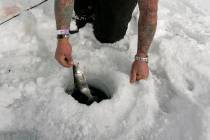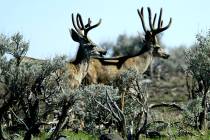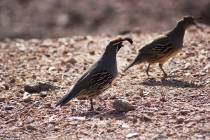Helpful hunters restore my faith in true sportsmen
There have been times over the past few years when I thought the rules of common courtesy and sportsmanship had all but disappeared from the sporting community, but something happened this past weekend that gave me cause to rethink that position. I’m not talking about anything spectacular or life altering, just a simple example of what it means to be a sportsman.
On Saturday morning, my youngest son, Hyrum, and I were combing country near the Highland Mountain Range for Gambel’s quail. About an hour into our early-morning search, I turned onto a two-track that leads along the bottom of a draw, past an upland game guzzler and back into the foothills another quarter mile or so where it dead ends.
We found a parking spot well beyond the guzzler and let Maddie, my graying black lab, out of her kennel. Maddie never has been as good at rooting out quail as her predecessor, but you won’t find a more devoted hunting companion — though she too is beginning to show her age. As Maddie scanned the nearby brush for quail scent, I caught the faint sound of quail chatter on the wind. It seemed to come from the north side of the draw where a low ridge rolled over into yet another draw.
After pointing Maddie in that general direction, the three of us made a wide loop up and over the ridge and then back into the foothills to the west but were unable to locate any birds. Then we crossed back to the south and made a pass through the brush on a wide alluvial fan where we hoped to catch a covey or two feeding somewhere along the shallow, brush-lined washes that cross through the area. We returned to the truck just in time to again hear chattering from a group of quail on the ridge to the north. So off we went again.
This time we quickly found the birds, only about a dozen in all, and they weren’t sticking around to end up in our game bags. Over the ridge they went, with Hyrum and me in hot pursuit. When one of the quail finally took flight, I cleanly missed him as he weaved in and out of the creosote. Hyrum got his first shot on a quail a minute or two later, but he also missed. We didn’t know it at the time, but those would be the only shots we would get all day.
After beating the brush unsuccessfully for another hour or so, we began hunting our way back to the truck when we saw one of those new FJ Cruisers on the hill above us. Hyrum and I watched as it turned around and headed down the draw toward the truck and, when it was out of sight, resumed hunting. Then all of a sudden the Toyota rounded a point of land below us. It was headed back in our direction and traveling fast.
At first, I wondered if we had done something to offend someone. Then one of the two men inside hollered that I had left my truck lights on. “Dadgummit! I just put a new battery in there yesterday,” I said. “Do you have any jumper cables?”
Hyrum and I had been hunting for more than three hours, and I was worried the truck battery would be dead. Though the men in the Toyota didn’t have jumper cables, and didn’t know us from Adam, they hung around long enough for us to hoof it back to the truck and turn the ignition key. To my surprise, the truck turned over and fired up with no problem. Then even after the motor was running, the men waited for a while as the battery charged back up.
These men had birds to hunt and game bags to fill, yet they took the time to double back and tell someone they didn’t know that his lights were on. Then, as if that wasn’t enough, they stayed around to make sure Hyrum and me wouldn’t have to walk into Searchlight to find help had the truck not started.
These men are more than hunters. They are sportsmen.
• SAFARI CLUB BANQUET — The Las Vegas Chapter of Safari Club International will have its 23rd annual banquet and auction Jan. 16 at the Henderson Convention Center. The new venue, according to chapter president Dave Small, will allow the organization to reduce ticket prices. Other reductions are available to those who order tickets by Oct. 31. For information, call Small at 702-334-3860.
Freelance writer Doug Nielsen is a conservation educator for the Nevada Department of Wildlife. His “In the Outdoors” column, published Thursday in the Las Vegas Review-Journal, is not affiliated with or endorsed by the NDOW. Any opinions he states in his column are his own. He can be reached at dougnielsen@att.net.



